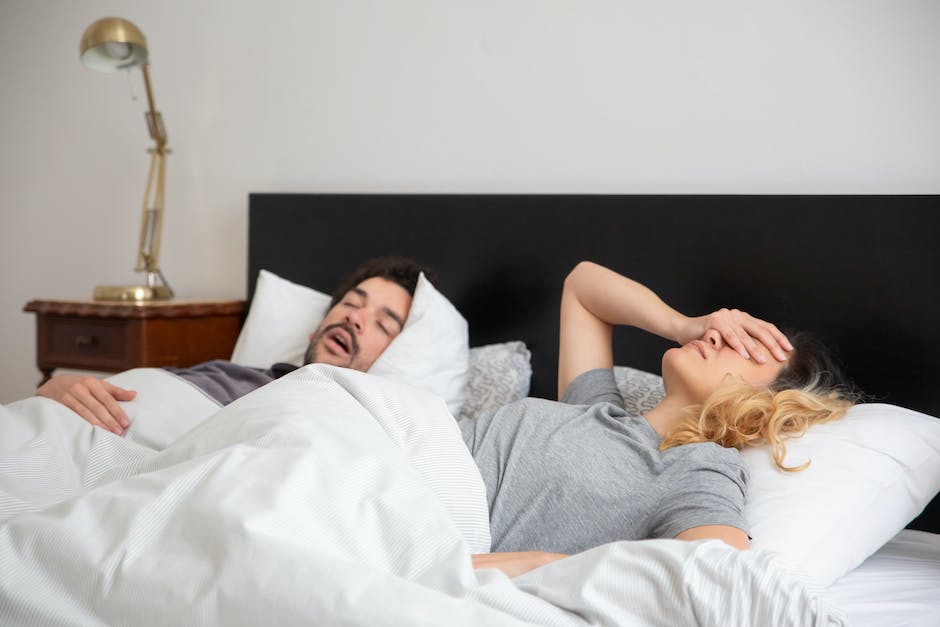Snoring can disrupt a peaceful night’s sleep not only for the snorer but for those sharing their sleeping environment too. In fact, habitual snoring affects approximately 90 million American adults. It is considered a chronic condition that can indicate serious health problems like sleep apnea. A fundamental understanding of the causes and types of snoring can open the path to the most effective solutions. It’s crucial to detect if lifestyle changes can contribute to reducing your snoring, or if medical treatments are necessary. In this dynamic world where real-life issues are shared, we can also learn from others’ testimonials and their journey to solve this sleeping disturbance.
Understanding Snoring
Understanding the Causes of Snoring
Snoring is often a result of blocked or narrowed airways during sleep which can be caused by many factors. Key lifestyle aspects, like being overweight or obese, might exacerbate the snoring issue. Accumulated fatty tissue and poor muscle tone in the throat and tongue can lead to snoring. Alcohol consumption, particularly before bedtime, can make snoring worse by causing your throat muscles to relax and block the airway. Smoking irritates the membranes in your nose and throat which can block the airways and cause snoring.
Your sleeping position could also contribute to snoring – lying on your back can cause your tongue to fall backwards into your throat, narrowing your airway and partially obstructing airflow.
Allergies and nasal congestion can also lead to snoring. When your nasal tissues swell from allergies or infection, it becomes more difficult to breathe through your nose, increasing the likelihood of snoring.
Never ignore severe and regular snoring as it could be a sign of a more serious health problem like obstructive sleep apnea (OSA). In OSA, your throat tissues partially or completely block your airway, preventing you from breathing.
Recognizing Types of Snoring
Different types of snoring signal different issues. Closed-mouth snoring can indicate a problem with your tongue. Open-mouth snoring might be related to the tissues in your throat. Snoring in all sleep positions can mean your snoring is more severe and could be a sign of sleep apnea.
Strategies to Stop Snoring
To stop snoring, it’s important to identify what’s causing you to snore. If the underlying cause is a lifestyle factor, changes like losing weight, quitting smoking, and cutting back on alcohol can help. If your snoring is caused by allergies, consider getting tested and treated.
Switching sleep positions can help prevent snoring. Sleep on your side instead of your back to keep your airway open. You might also consider raising the head of your bed by about four inches which could help reduce snoring by keeping your airways open.
Look into anti-snoring mouth appliances, which can keep your airway open and decrease vibrations. Alternatively, if your nasal passages are blocked, nasal strips can help to increase the space in your nasal passage, making your breathing more effective.
If lifestyle changes don’t help, consult a healthcare provider. Serious conditions like sleep apnea require medical treatment.
Additional Information
For more detailed information on causes and treatments of snoring, the Mayo Clinic offers a comprehensive guide that explains the reasons behind snoring and provides potential remedies to mitigate snoring tendencies.

Photo by vorosbenisop on Unsplash
Lifestyle Changes
Commit to Regular Exercise
Engaging in regular physical exercise can greatly reduce or even completely eliminate snoring. Exercise improves your overall health, helps you lose weight, and over time, can strengthen your neck muscles. A focused neck workout can particularly help reduce snoring as it tightens the muscles around your airway, making it less likely to collapse while you sleep. Exercises such as cycling, walking, or swimming can be beneficial. Here is a link from the NHS that provides additional tips on how to stop snoring. Yoga is another excellent choice as it helps to improve breathing and reduce stress.
Maintaining a Balanced Diet
An unhealthy weight can worsen snoring in individuals prone to the condition. Consider working with a dietician or a nutritionist to curate a balanced diet plan that fits your age, sex, lifestyle, and dietary needs. Avoiding large meals or specific foods, such as dairy or soy milk, before bedtime can also alleviate snoring. These foods are known to increase mucus production in the throat and nose, which contributes to snoring. The Mayo Clinic provides additional information about the relationship between diet and sleep.
Quit Smoking
Smoking contributes significantly to snoring and sleep apnea. The substances found in tobacco smoke can irritate and inflame your airways, leading to snoring. If you smoke and snore, quitting this habit might reduce your snoring over time, if not eradicate it completely. The American Lung Association provides a variety of resources to help you quit smoking.
Control Alcohol Intake
Alcohol relaxes the muscles in your throat, and this relaxation can lead to snoring. By limiting or avoiding alcohol close to bedtime, you might reduce or eliminate your snoring. The Sleep Foundation has written an article outlining the effects of alcohol on sleep.
Adopt Healthy Sleep Habits
Poor sleep habits or sleep hygiene can have a similar effect to that of drinking alcohol. Working long hours without enough sleep, for example, causes you to sleep hard and deep, leading to “floppy” muscles and snoring. Establishing a regular sleep schedule might help to resolve this issue. The CDC provides an insightful guide on how to improve your sleep habits.

Medical Treatments
Consider Medical Treatments
There are a few medical treatments available to those who struggle with chronic snoring. However, these options are typically considered when lifestyle changes provide no relief and the snoring becomes a significant health concern.
Continuous Positive Airway Pressure (CPAP)
One common treatment is the use of Continuous Positive Airway Pressure (CPAP) machines. The CPAP machine works by delivering a stream of compressed air through a hose to a nasal pillow, nose mask, or full-face mask, splinting the airway (keeping it open under air pressure) so that unobstructed breathing becomes possible, reducing and/or preventing apneas and snoring. Link to the Johns Hopkins Medicine site on CPAP
The effectiveness of CPAP machines is widely recognized, with many users experiencing immediate symptom relief. Link to Mayo Clinic on CPAP Despite this, some users do report side effects such as nosebleeds, dry mouth, and discomfort from the mask itself.
Oral Devices
Alternatively, oral devices can be used. These devices look similar to mouthguards and work by moving the jaw forward to increase the size of the upper airway, which can reduce air resistance that leads to snoring. Link to Harvard Health
The American Dental Association states that while oral appliances for sleep apnea are often used as a first-line treatment for snoring, their effectiveness varies. Factors affecting effectiveness include the type of appliance, the fitting process, and patient compliance. Link to ADA site Side effects can include temporary discomfort, salivation changes, and alterations in occlusion or bite.
Surgical Options
In extreme cases, surgery might be considered. There are several different types of surgeries that can be done to help reduce snoring. These can range from Uvulopalatopharyngoplasty (UPPP), Thermal Ablation Palatoplasty (TAP), tonsillectomy, and adenoidectomy, to more complex surgeries like maxillomandibular advancement and hypoglossal nerve stimulation. Link to American Sleep Association
Surgical success rates vary, and potential risks include pain, bleeding, infection, and adverse reactions to anesthesia. Thus, surgery is typically recommended only after other treatments have failed.
It’s important to consult with a healthcare provider before deciding on any treatment. Together, you can weigh the benefits and risks, and determine the best course of action for your specific situation.

Reviews and Testimonials
An Informed Decision
Selecting the most effective method to permanently stop snoring invariably starts with thorough research. It’s prudent to investigate the myriad of snoring remedies out there. Preeminent among this is the exploration of reviews and testimonials from people who have successfully ceased their nocturnal noise-making. Such reviews provide a lens into the practical effectiveness of various snoring treatments.
Case Study Reviews
A good place to start is at snore.net. This website hosts a multitude of reviews on snoring treatments covering a vast array of methods from simple lifestyle changes to medical interventions. To navigate this site, simply visit Snore.net.
This platform provides a vast catalog of reviews on various snoring treatments. What’s particularly beneficial about this site is that it offers a user-friendly layout where you can easily access detailed reviews. The reviews unravel numerous aspects of the treatment, ranging from its general effectiveness to its potential side effects.
Hearing it from the Users
The unique feature of this site is its user-generated content. For instance, users can leave comments about their personal experiences with specific treatments. These user testimonials provide a more personalized perspective on the effectiveness of a particular remedy.
Imagine snoring-ridden men, dressed in their nightwear, relieved by their newfound silence, or women finally at peace from the upsetting nocturnal soundtrack, all sharing their experiences and results. These stories imbue the reviews with more honesty than a brightly lit advertisement ever could.
Remember to read these testimonials critically. People may vary in their responses to treatments, and what worked for one might not necessarily work for another.
Greater Understanding You Can Get
As a website dedicated solely to snoring treatments, it has the advantage of compiling a comprehensive list of solutions. The testimonials and reviews can guide you in making an informed decision on the method that you should adopt to halt your snoring. The experiences shared by these individuals provide a practical perspective – something tangible and relatable.
What’s pleasing about real reviews is that they often possess unvarnished honesty, devoid of promotional hyperbole. They help you to encapsulate the benefits and disadvantages that lay ahead, affording you to make choices not based on speculation but on real-life experiences.
Remember, choosing to stop snoring is a decision made in the quiet of the night but has ramifications that echo in the light of day.

Recognizing the factors that contribute to your snoring and taking appropriate measures could lead you to a snore-free life. The journey might involve lifestyle adjustments such as weight loss, quitting smoking, or managing alcohol intake as well as exploring different medical interventions. It can indeed be an overwhelming process, however, we are not alone in this battle. Sharing experiences, successes, and failures can play a significant role in directing us towards viable solutions. Remember, altering a lifestyle doesn’t happen overnight, but every small step towards a healthier lifestyle brings us closer to a snore-free life and its countless benefits.
